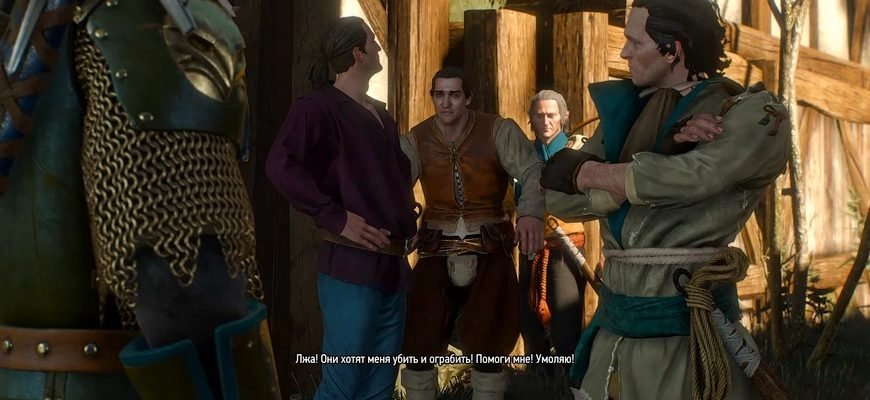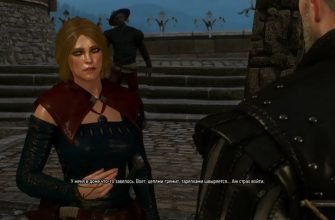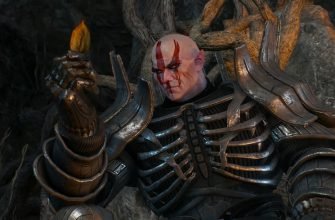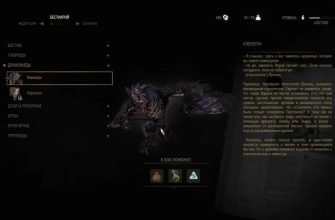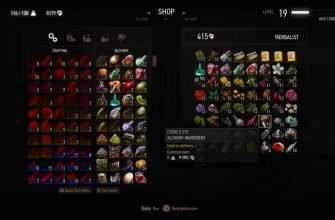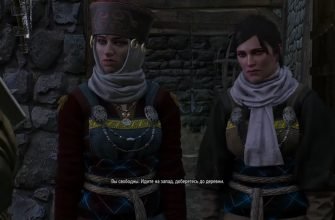The Witcher 3: Wild Hunt is renowned for its immersive world, rich character development, and morally complex quests. One of the unmarked quests that exemplify this complexity is “Karmic Justice,” which revolves around a Fisstech dealer in Novigrad and a group of outraged elves. This side quest, which is triggered between 10 PM to 1 AM (in the latest patch), presents players with a hard-hitting ethical dilemma.
The Scene
In the heart of Novigrad, between the Tretogor Gate and the Southern Gate, Geralt can stumble upon a dire situation. Three elves have cornered a human merchant in an alleyway just north of the dye pits in Farcorners. The merchant looks terrified as he faces the wrath of these aggrieved elves. It’s clear from the start that something dramatic is about to unfold.
Initial Interactions
When approached, the elves confront Geralt with their grievances. They accuse the merchant of selling poisoned Fisstech – a dangerous narcotic in the game world – to their young kin, leading to their painful deaths. As one would expect, the merchant vehemently denies these accusations, claiming that the elves simply want to rob him. What ensues is a heated exchange where emotions run high on both sides. The elves assert that they couldn’t find any Fisstech because the merchant had already sold it all, while the merchant maintains his innocence.
Decision Time
At this point, players need to make a pivotal decision: should they intervene on behalf of the merchant, or allow the elves to deliver their brand of justice?
- Help the Merchant: Choosing to help the merchant means that Geralt will have to fight and kill the three elves. During this skirmish, there’s a risk that the merchant could die. If you manage to keep the merchant alive during the combat, he will express his gratitude and reward Geralt with 50 crowns and 25 experience points. Essentially, this choice casts Geralt as a protector of law and order, albeit one who might be defending a guilty man.
- Support the Elves: On the flip side, if Geralt allows the elves to exact their revenge, the merchant will meet his demise. The elves will thank Geralt for permitting them to carry out their justice before leaving the scene. Choosing this path yields no tangible rewards but aligns Geralt with the cause of those seeking justice, albeit through a vendetta.
Analysis of the Choices
Helping the Merchant
If you decide to help the merchant, your actions align with protecting a potentially innocent life from mob justice. However, this choice is steeped in uncertainty. The allegations against the merchant are severe, with the lives of innocent elves at stake. By fighting the elves, Geralt is upholding the principle that vigilante justice is unacceptable without concrete evidence. This decision could be seen as an upholding of civilized norms and a rejection of anarchy.
However, this is not a straightforward decision. It’s possible that the merchant is indeed guilty of selling poisoned Fisstech. In that case, aiding him not only allows a criminal to go unpunished but also involves murdering elves who are genuinely seeking retribution for a grievous wrong. This path can lead to an internal conflict for Geralt, who often finds himself in morally gray situations where the line between right and wrong is blurred.
Allowing the Elves to Seek Vengeance
Allowing the elves to kill the merchant can be seen as siding with victims seeking justice against a perceived wrongdoer. This path acknowledges the raw emotions and the suffering of the elven community. On one hand, it’s an attempt at restorative justice from a community that has historically faced immense persecution and prejudice within the game’s universe.
However, endorsing this kind of justice can propagate a cycle of hatred and violence, fostering further divisions between humans and non-humans in Novigrad. Moreover, there’s no solid evidence presented to definitively prove the merchant’s guilt. In the absence of a thorough investigation, Geralt’s acquiescence to the elves’ demands may indirectly endorse a miscarriage of justice.
Context and Impact
The “Karmic Justice” quest is a notable example of The Witcher 3’s approach to moral ambiguity. Unlike many modern RPGs, which often present clear-cut good or evil choices, The Witcher 3 frequently places players in situations where neither choice feels entirely right or wrong. This quest encompasses the broader theme of justice within the game and encourages players to reflect on the consequences of their actions.
Moreover, this quest touches on larger socio-political themes within The Witcher 3 universe:
- Social Tensions: The conflict between humans and non-humans is a recurring theme in the game. Elves, dwarves, and other non-human races often face systemic discrimination and marginalization within human societies. The violent anger of the elves in this quest represents the cumulative frustration felt by these marginalized groups.
- The Morality of Vigilante Justice: Players are confronted with the implications of taking justice into their own hands. By siding with the elves, Geralt contemplates the merits and perils of vigilante justice while recognizing the inherent flaws in existing legal structures.
- The Role of Evidence: The quest also delves into the importance of evidence in ensuring fair justice. Without concrete evidence, Geralt must make a decision based on intuition and moral judgment, highlighting the difficulties faced in real-world justice systems.
Technical Aspects and Bugs
It’s worth noting that “Karmic Justice” is an unmarked secondary quest. This means it doesn’t appear in the player’s quest journal, nor does it have associated objectives. Such quests add to the game’s immersive quality by providing organic encounters that mimic real-life unpredictability.
Players have reported sporadic issues with this quest:
- Disappearing Characters: Sometimes, the elves and the merchant fail to appear in the designated alleyway. This can typically be resolved by reloading a save or meditating until the quest spawns correctly.
- Balance Issues: The level constraints and difficulty settings do not influence the rewards for this quest. Regardless of the player’s level or selected difficulty, the rewards (if the merchant survives) remain constant.
Comparisons and Parallels
The moral ambiguity in “Karmic Justice” parallels several other quests in The Witcher 3. The infamous “Lynch Mob” scenario, for instance, offers a similar dilemma where Geralt must decide whether to defend a Nilfgaardian soldier from an enraged mob of villagers. Just as in “Karmic Justice,” players must navigate conflicting narratives and incomplete information.
Furthermore, in the Skellige side quest “In Wolf’s Clothing,” Geralt is faced with another morally complex situation at the climax of the quest. Each of these narratives challenges players to consider the broader implications of their choices and the nature of justice within the world of The Witcher.
In Conclusion
“Karmic Justice” is a microcosm of the rich storytelling and moral complexity that The Witcher 3 is celebrated for. By presenting players with an unmarked quest that forces them to navigate a morally gray landscape, the game continues to engage and challenge its audience. Through the lens of this hidden quest, players experience firsthand the difficulties of balancing justice with empathy, evidence with instinct, and law with morality in a world rife with nuance and conflict.

